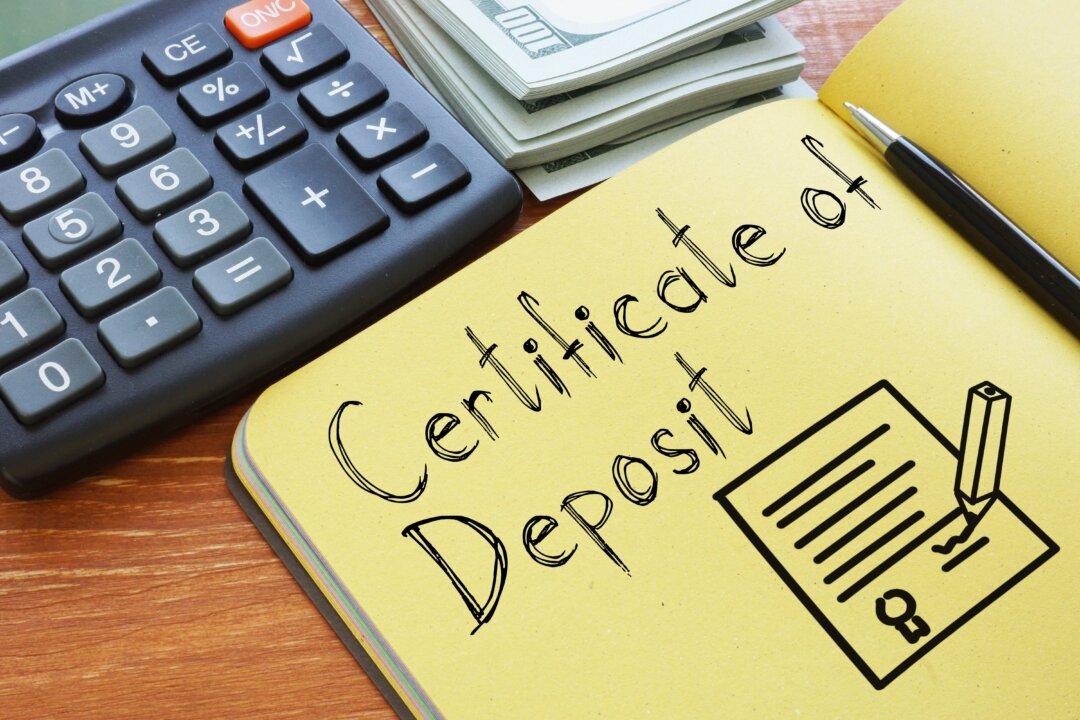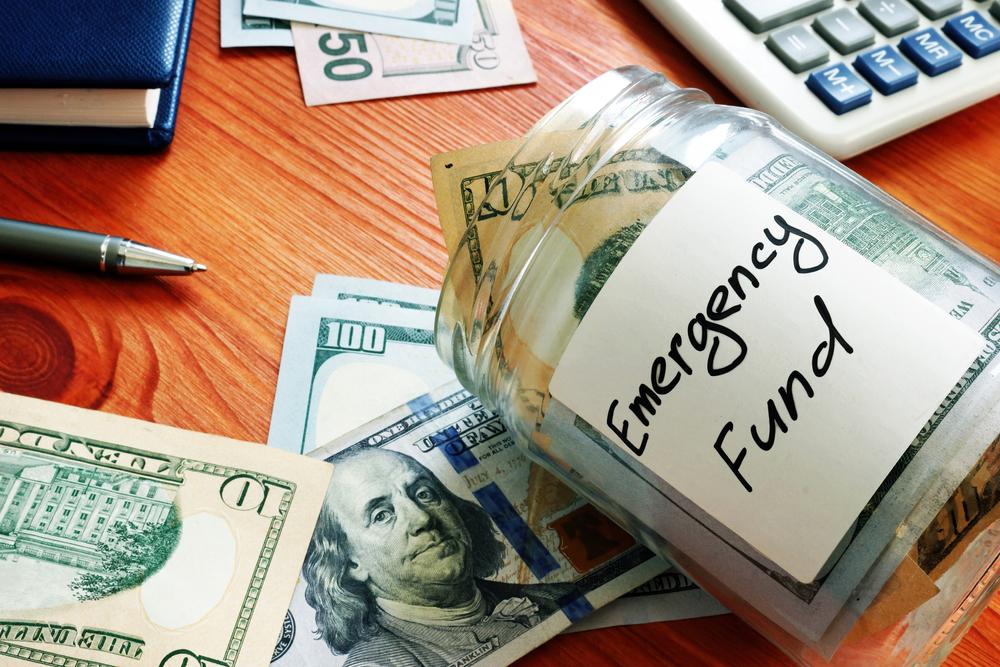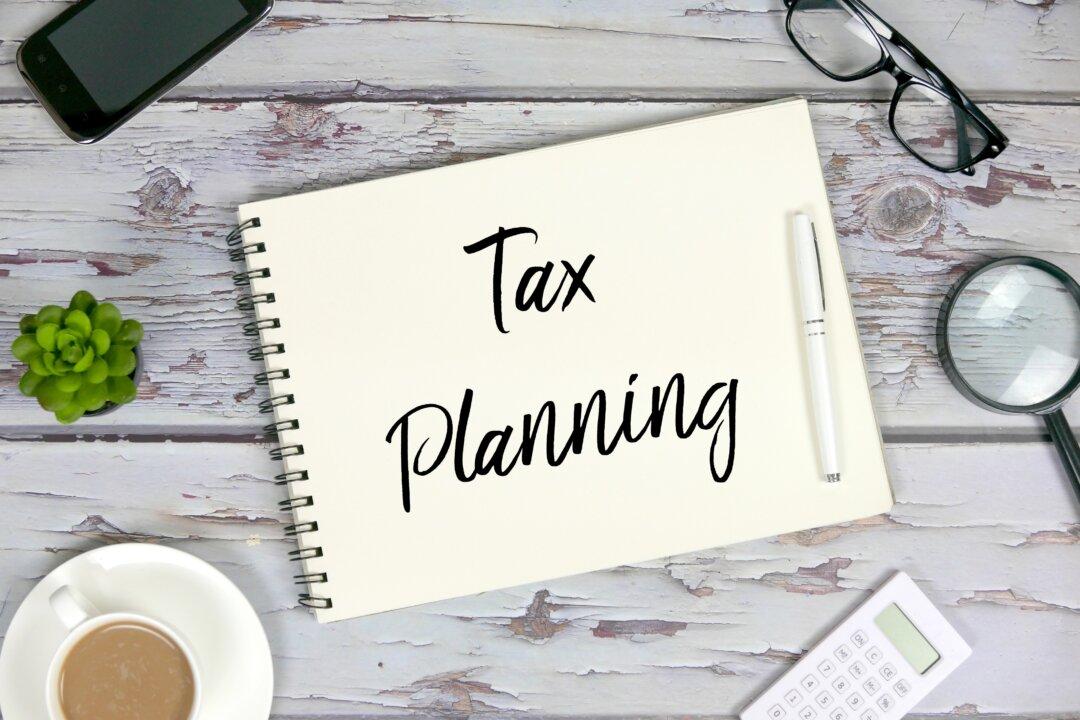What if your money could earn you a higher fixed-rate interest than a traditional savings account if you promised to leave it untouched for a predetermined period?
That’s what a certificates of deposit (CD) account is all about—a low-risk way to hold cash for a given period of time.
There are many benefits with CDs. Besides the higher interest rate, a CD can be a good way to grow your retirement nest egg without the risk (or reward) of putting your money in the stock market.
What Is a CD Account?
A CD account is a savings account type that involves depositing cash with a financial institution for a fixed period and usually pays higher interest than a basic savings account.So, are CDs guaranteed or safe investments? Yes, just like deposits in your bank account, bank CDs are Federal Deposit Insurance Corp.-insured up to $250,000 per depositor, per institution. The National Credit Union Administration insures CDs in credit unions with the same limits. This means that on the spectrum of low- to high-risk investments, these investments are about as safe as you can get.
How Do CDs Work?
First, you deposit a certain amount of cash in a bank account for a certain amount of time; this is referred to as the term of the CD.The next step involves selecting the CD’s term, which will determine the annual percentage yield (APY) you receive.
Last, you will add the amount you wish to deposit. Some banks require a minimum deposit, such as $500 or $1,000, while others don’t.
CDs benefits are plenty. CD rates remain unchanged throughout the term of the CD. Once the CD matures, you will have access to the amount you deposited plus the interest you’ve earned.
If you do not take action, your term may be renewed, and sometimes at a lower interest rate.
Credit unions call CD investment share certificates and the returns dividends for the simple reason that credit unions are nonprofits where the account holders are also owners of the credit union.
What Are CD Rates?
This is the interest rate paid by a CD, and it depends on a few factors.First, overall financial market conditions generally affect CD yields. If the Federal Reserve lowers interest rates, CD yields will generally fall across the board. On the other hand, when the Fed hikes interest rates, CD yields tend to rise.
The type of financial institution offering the certificate of deposit also plays a big role. Depending on where you open a CD account, the rates may be appallingly low or higher than you might get with a traditional savings account.
Credit unions tend to have lower CD yields than brick-and-mortar banks, for instance. Further, online banks tend to have the best CD yields of all. Before you open an account, shop around to check CD rates.
CD vs. Savings Account
So, how is a CD different from a savings account?Technically, a CD is a type of savings account. However, in banking, it differs from a traditional savings account in a few important ways.
With a savings account, you can take out money on your terms.
How Is CD Interest Calculated?
Now you have answers to the questions “How do certificates of deposit work” and “How much interest does a CD pay.”We’ll now address how three-, six-, and 12-month CDs work.
The interest rate of a CD depends on the financial institution and the term length you sign up for, which can range from three months to five years or longer. Some financial institutions issue CDs with unconventional terms.
As a general rule of thumb, the shorter the term, the lower the APY, and vice versa.
CDs offer compounded interest throughout the term.
CD Investments: How Do You Earn Money on a CD?
When you invest in a CD, you’re essentially loaning money to the bank or credit union, which then pays you back in fixed, regular payments in return for the ability to use it.CD vs. High Yield Savings
High-yield savings accounts from online banks may offer compelling interest rates—close to 10 times the national average savings rate—while giving you the freedom to withdraw at any time.CDs, on the other hand, typically charge a penalty to make early withdrawals.
Why Is a CD a Good Investment?
It’s advisable to keep some of your assets in cash.CDs can be an attractive investment due to the certainty and predictability they offer in a constantly changing environment and economy. They allow you to get a guaranteed rate of return on your deposit in exchange for holding your funds for a set term.
How to Buy CDs
To purchase a CD, you can simply create an account or log in to your bank account if you’re already a customer. You might qualify for relationship rates if you already have an account at the same institution. To open an account, new customers will need to provide some personal information, including their Social Security number.Next, find a CD that best suits your needs. On how to choose a certificate of deposit, beware of promotional rates or additional fees that plummet after a few months.
Buying certificates of deposit is the next step. After finding a CD with terms that align with your savings timeline, it’s time to fund the account (within the bank’s minimum deposit guidelines) and let the interest do its job.
CD laddering is a great idea if you’re not interested in tying up your cash for years at a time.
Ending: Certificate of Deposit: Key Takeaway
CDs offer a higher interest for less accessibility.By locking up your money in a CD, you’re subjecting yourself to risks like the opportunity risk of not being able to use those funds elsewhere and pressure from inflation.
We have covered what a CD account is and how it works, why a CD is a good investment, the benefits of CDs, and how CD interest is calculated.
FAQs
1. How Often Do CDs Pay Interest?
Most CDs pay interest monthly, although this will vary by account.2. Can You Add to Balance Regularly for Certificate of Deposit?
Generally, CDs only allow a fixed amount of cash. Once you’ve opened a CD, you can’t add money to the account.3. Are CDs a Good Investment?
Yes, CDs are a good investment if you need liquidity but don’t want savings to be too accessible.4. How Many CDs Can You Open?
Generally speaking, there are no limits on how many CD accounts you can open.It’s vital to remember, however, that you will need to be able to meet the minimum deposit requirements for each of the CDs.








